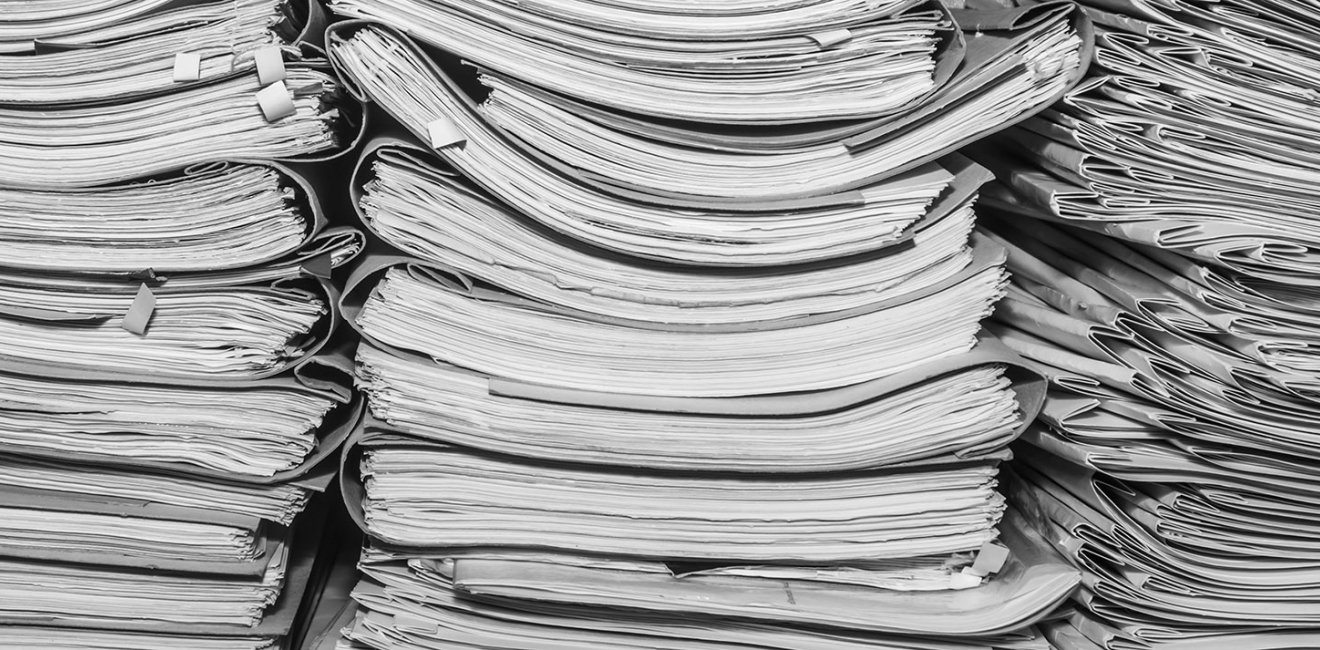A Survey of Middle East Archives: Turkey
In part two of a new series of blog posts, Kian Byrne surveys archives and research institutions in Turkey.

A blog of the History and Public Policy Program
In part two of a new series of blog posts, Kian Byrne surveys archives and research institutions in Turkey.

The Turkish national archives have entered a period of tremendous change in the past few years. Beginning in 2016, the former Prime Ministerial Archives, now the Presidential State Archives – hereafter State Archives – began a push to centralize and modernize the Turkish archival system. Prior to 2018, not all Turkish government ministries were required to deposit their records in the State Archives, but as part of this push, all materials from all ministries are to be held by the one repository. In addition, each document is to be reviewed, cataloged, and digitized. The hope is finally to create a clear, uniform system to manage Turkey’s governmental papers. The scope of this project, however, means that research in the Turkish archives will be in a state of flux for the next 10-20 years, at least.
While this process is underway, accessing materials in the State Archives, and other ministry archives, is rather complicated and limited. As of now, there has not been much of a functional change in the system that governed the old Prime Ministerial Archives. The record locators of previously cataloged documents will not be changed, while the new ones brought in from the various ministries will use a system based on the Russian archival model.
There is an online catalog of the materials currently available to researchers, which foreigners can access by registering with their passport. The State Archives are divided into 3 sections: Republican Archives (BCA), Ottoman Archives (BOA), and Turkish Diplomatic Archives (TDA). The TDA represents the records that have been transferred from the Turkish Diplomatic Archives, though it only holds about 14,000 documents, covering up to the 1950s. This archive will continue to grow as the TDA processes its holdings, but for now the Republican Archive will be the primary resource for scholars of modern Turkish history.
The BCA is made up of 14 fonds. The most relevant fonds to Turkey’s diplomatic history are the PM, Ministry of Education, Ministry of Agriculture, and Documents from Foreign Archives. Researchers are able to search for specific documents by fond, keyword, and year. Users are only able to see ‘teasers’ of each document online, but can place desired files into a ‘digital box,’ which can then be printed for a charge of a few Turkish Lira per page. It is worth noting, however, that of the roughly 100,000 documents available online, there is frustratingly little relating to Turkish foreign policy. For instance, searching for the term “Russia” in the year 1945 in the PM fond reveals only a handful of (or, very few) documents.
The TDA, the Foreign Ministry’s archive, has a separate archive building in Ankara where its physical collections are held. This is where the most valuable materials about Turkey’s foreign policy lie. Unfortunately, these collections are far more difficult to access. Foreign researchers are able to visit the archives in person, but cannot utilize the archive’s website. The TDA is still in the early stages of processing its holdings, and the timeline for indexing, digitizing, and declassifying the 65 million pages of documents (according to a brochure the archive hands out), dating between 1919 and 2001, could take decades. As the archivists work their way through the collections, moving chronologically, they estimate it will take ten years just to get up to the 1950s.
To give an idea of the scope involved, there are currently around 500 archivists working on the centralization and modernization project, and the State Archives hope to employ an additional 500 in the coming years. However, even the archivists who have worked in the TDA for years do not have a complete understanding what is contained in the tens of millions of pages stacked on its shelves. Most of the documents in the TDA have not been reviewed or cataloged prior to the decision to centralize the archives. The administrators are able to process requests for specific documents, but cannot provide a catalog by subject. Additionally, declassification of documents is managed by the Foreign Ministry itself, and not the TDA. This adds to the length of the processing requests and also relies on a historically more conservative ministry to determine how open to be with potentially sensitive materials.
There are not many alternatives to the State Archives and the TDA in terms of actual archives, though there are a number of libraries with large collections of manuscripts and monographs. The National Library in Ankara (Milli Kütüphane) does not have much in the way of primary sources but holds 1 million monographs, journals, newspapers, and other materials in modern Turkish as well as other languages, such as English, Ottoman Turkish, and Persian. There is a large collection of items on the life of Mustafa Kemal Atatürk, Turkey’s first president, and some materials are available online, primarily dating to the pre-Republican period. Registration is required for physical entry to the library – registration forms can be filled out ahead of time or in person – at a cost of 5TL for 3 months and foreign visitors must provide a passport to receive the library card. Researchers are only able to request 3 items at a time and must pay for photocopies. The library’s email address is bilgi@mkutup.gov.tr and its phone number is +90 312 212 62 00.
The largest manuscript collection in Turkey belongs to the Süleymaniye Library (Süleymaniye Kütüphanesi) in Istanbul. Süleymaniye Library boasts over 100,000 manuscripts and 50,000 printed books, mostly centered around Islamic history from the Ottoman period to the 20th century – though the majority fall between the 17th and 19th centuries. All of their manuscripts are digitized but are only available in the reading room, as the library does not have a website. The main library is open from 9am-5pm on weekdays, but the reading room is open 9am-11pm every day, including holidays. Additionally, visitors do not need to register, just provide a government-issued ID. Reproductions cost 1TL per scan (usually 2 pages) for foreigners and 0.5TL per scan for Turkish citizens. You can reach the library by phone at +90 212 520 64 60, and the address is Ayşe Kadın Hamam Sok. No:35 Fatih, İstanbul.
The Ataturk Library (Atatürk Kitaplığı) in Istanbul also offers collections of periodicals and older manuscripts, but it also has a collection of private papers of various artists and influential figures from the early Republic and Ottoman periods. The library’s goal is to digitize and publish rare works from the Ottoman period, some of which are currently available online.
While the vast majority of archives and libraries in Turkey center on the Ottoman period, there are a number of universities and research institutions that are working on the Republican period. Bilkent University’s Center for Russian Studies in Ankara is a research institution that focuses on the study of Turkish international relations, particularly with Russia, but also the Eurasian region and wider world. Koç University in Istanbul, another of Turkey’s top schools, has several associated research centers that focus on contemporary Turkish issues, though none are dedicated to diplomatic history specifically.
The Orient-Institut Istanbul is a specialized research library of both Ottoman and Republican Turkish history and culture. Located near Taksim Square in Cihangir, Istanbul, the library has 48,000 monographic volumes and 1,500 periodicals that are open to the public on weekdays. Users can access the catalog online and are allowed to take photos of materials or use their own book scanners for free; or they can request copies from the staff at a rate of 0.15TL per copy. The Beyoğlu Research Centers Network (BiblioPera) is a network of research centers in Turkey, which should be able to connect visitors with institutions working on various subjects. One example is the SALT Research Institute, which has a digital archive of Ottoman and Republican Turkish art, architecture, and economic materials.
Researchers working in Turkey are also encouraged to seek out private archives of companies and individuals relevant to their projects. The Is and Ziraat banks each have archives of business records and foundations like The İnönü Foundation Archive strive to maintain the legacies of historical figures like İsmet İnönü, Turkey’s second president.


A leader in making key foreign policy records accessible and fostering informed scholarship, analysis, and discussion on international affairs, past and present. Read more


The Cold War International History Project supports the full and prompt release of historical materials by governments on all sides of the Cold War. Read more



